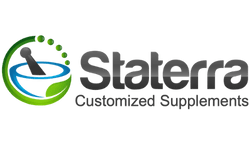-
Antioxidants – (Vitamin C, Taurine, NAC)
During exercise, your body builds up what are called free oxide radicals. Free radicals are atoms or groups of atoms with an odd (unpaired) number of electrons and can be formed when oxygen interacts with certain molecules. Once formed these highly reactive radicals can start a chain reaction, like dominoes. Their chief danger comes from the damage they can do when they react with important cellular components such as DNA, or the cell membrane. Cells may function poorly or die if this occurs. To prevent free radical damage the body has a defense system of antioxidants. Antioxidants are molecules which can safely interact with free radicals and terminate the chain reaction before vital molecules are damaged. Glutathione is quickly becoming recognized as one of the most important cellular antioxidants for exercise performance and recovery. N-Acetyl-L-Cysteine(NAC) has the ability to stabilize cellular glutathione levels.
-
Beta-Alanine
Beta-alanine is all about increasing levels of carnosine in your muscle. Carnosine is made by your muscle from the amino acids L-histidine and beta-alanine, but beta-alanine is the rate limiting ingredient. Taking beta-alanine can increase muscle carnosine levels by up to 80%, which leads to performance enhancement in both trained and untrained athletes. It is currently believed that carnosine acts to buffer the pH increase caused by muscle contraction (muscle contraction generates acid as a by product, when there is too much acid in the cell, it looses the ability to contract efficiently). It is also thought that carnosine could act to increase contraction efficiency (through increased contraction-excitation coupling) and work as an antioxidant.
-
Creatine
Creatine can be made by the body in the liver and plays a role in the simplest form of energy production within the cell. Creatine is converted to phosphocreatine, which the cell uses to “store” energy. The more phosphocreatine, the more quick energy your muscles can access. This simple system can sustain a muscles energy needs for 3-15 seconds DURING AN ALL OUT SPRINT. This doesn’t seem long, but is a hockey shift is only 45 seconds and you top out PCr system at 15 seconds, this means your only depleting glycogen for 30 seconds, which over time could make a big difference. Also, this PCr energy system regenerates during rest periods, so if you aren’t pushing 100%, it could support your muscles longer than 15 seconds.
Supplements & Safety
-
Always maintain good health while using supplements
-
ALWAYS follow dosing directions. NEVER take more than the recommended dose. It’s best to start with a partial dose (1/4-1/2 the recommended dose) and work your way up once you know how your body responds.
-
Start a supplement regimen with your goal in mind. This will allow you to research and determine which supplement is best for you.
-
Don’t just start taking a supplement because a friend/teammate takes it and likes it. Your body is different and could respond differently.
-
NEVER START OR CHANGE SUPPLEMENTS PRIOR TO AN IMPORTANT COMPETITION!
